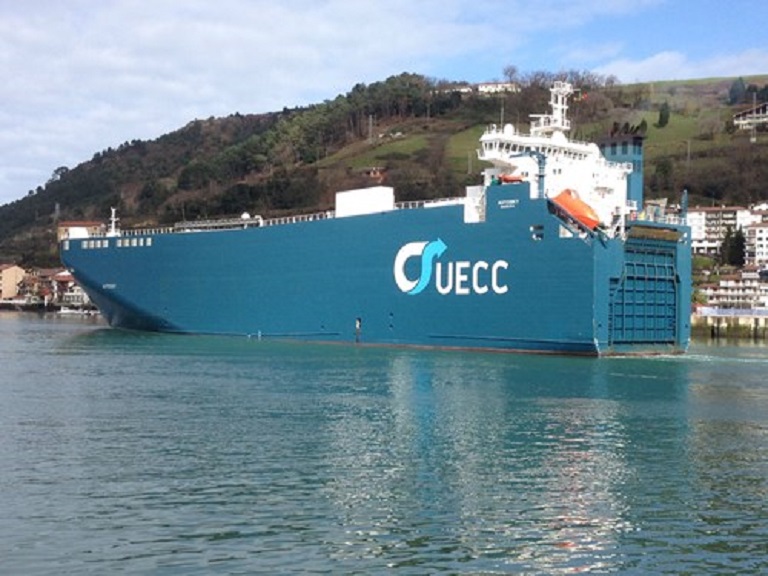Leading short sea ro-ro operator UECC and sustainable marine biofuel pioneer GoodFuels have launched a joint trial of GoodFuels Bio-Fuel Oil (MR1-100 or BFO) on UECC’s ro-ro vessel M/V Autosky, the companies have announced today.

The three month trial will test 3,000 metric tonnes of sustainable biofuel on the 140m, 2080 vehicle carrier – a significant step in advancing marine biofuel for the ro-ro segment. The biobunkering, which will take place in the Port of Rotterdam, will be the first in a series of bunkering operations between March and May 2020. M/V Autosky will test BFO on its normal route between Zeebrugge, Belgium and Santander, Spain and will result in a reduction of more than 6,500 metric tonnes of CO2 emissions on a well-to-wake basis.
The announcement comes at a time when the industry is under increasing scrutiny to improve its sustainability and move towards decarbonisation. With scalability, sustainable marine biofuel effectively allows shipowners and operators to comply with both the 2020 0.50% sulphur cap, as well as future regulations on carbon reduction by 2030 and 2050.
GoodFuels’ BFO is the first ever residual fuel-equivalent biofuel, requiring no changes to marine engines. The biofuel ‘drops in’ to normal fuel tanks, virtually eliminating CO2 and substantially reducing SOX. Due to the absence of sulphur, the Bio-Fuel Oil can also be used to replace distillate fuels.
Daniel Gent, Energy & Sustainability Manager, UECC, said: “At UECC, we pride ourselves on supporting sustainable solutions to the issues that our planet faces. We are excited to play a leading role in accelerating sustainable biofuel uptake for the ro-ro segment. This agreement demonstrates our commitment to reducing the carbon footprint of our existing tonnage and further complements the emissions reductions on our existing LNG fleet, as well as our LNG battery hybrid newbuilds.”
Isabel Welten, CCO, GoodFuels, said: “We are proud to be bunkering sustainable marine Bio-Fuel Oil on M/V Autosky, kicking off the first use of low-carbon fuels with our friends and partners at UECC. This trial will help UECC to further prove the applicability and technical suitability of biofuels for the ro-ro segment. Importantly, we also want to prove to leading car manufacturers that biofuels are a great way to immediately decarbonise their cargo and help change the sector for the better.”
Following the trial period UECC and GoodFuels will explore further options for continuing marine biofuel uptake within the ro-ro segment.
UECC was founded in 1990 and is jointly owned by Nippon Yusen Kabushiki Kaisha (NYK) and Wallenius Lines.